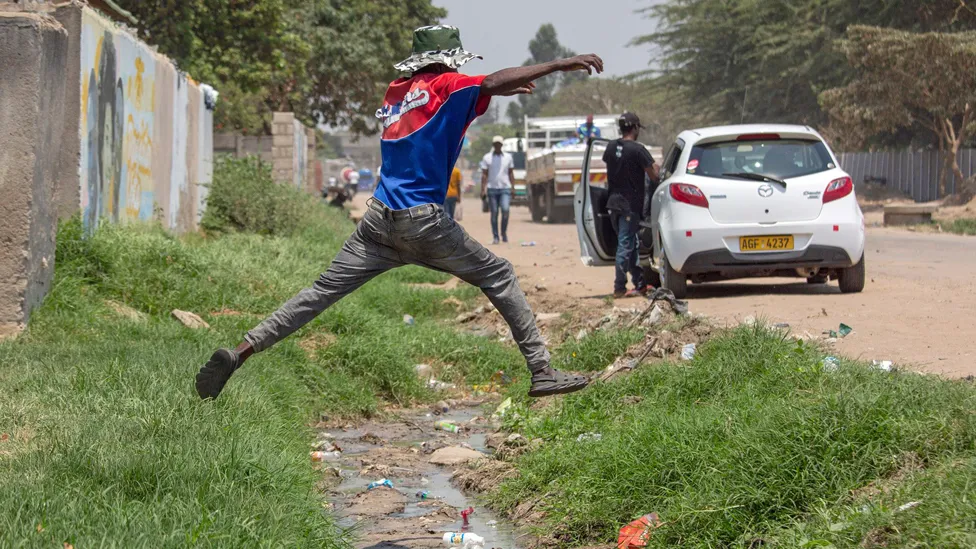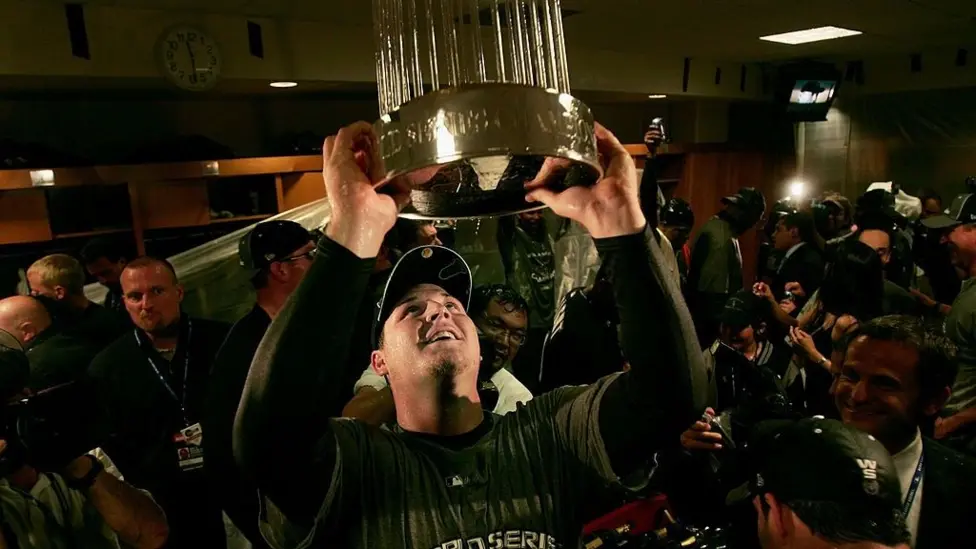Zimbabwe's cholera crisis fuelled by chronic water shortages
For months now, Zimbabwe has been battling to stem the spread of deadly cholera in its cities and villages because the country simply lacks clean water.

"If the water comes at all it's often dirty," Regai Chibanda, a 46-year-old father of five from the sprawling township of Chitungwiza, told me.
Cholera, an acute diarrhoeal infection caused by consuming food or water contaminated with the bacterium Vibrio cholerae, can spread quickly in cramped and dirty conditions.
It has become a kind of grim reaper to this southern African nation - back in 2008-2009 more than 4,000 went to their graves when the water-borne disease struck in what was already a frenzied and turbulent time.
It reflected the imploding political and economic crisis when hyper-inflation peaked at 80 billion per cent and heralded a historic power-sharing government that eventually got to grips with the situation.
Today inflation is again rearing its head and cholera has spread across all of the country's 10 provinces, mainly affecting children, often left unsupervised in the stifling heat as their parents try to work.
This outbreak first struck back in February and as October ended official figures from the Health and Childcare Department are listing nearly 6,000 cases and some 123 suspected deaths.
President Emmerson Mnangagwa, who won disputed polls in August for a second term in office, has promised a nationwide borehole-drilling programme.
This is to be supported by solar-powered water points, mainly to serve some 35,000 villages which do not have access to clean drinking water.
In the capital, Harare, residents can go for weeks, or even months, without a regular supply of water from the Harare City Council. In Harare's satellite township of Chitungwiza, more than 50 deaths were reported as October ended - all from cholera.
Chitungwiza is a city all of its own given its size and population, but the infrastructure of its water works and civil planning have barely caught up with an ever-expanding population and a massive exodus from the villages to the city in the constant search for work.
"In Chitungwiza things are not good as far as water is concerned. There have been many people affected by cholera and every year it's the same," said Mr Chibanda, who commutes by car daily to central Harare for his job as a printer. He said he had heard of several deaths in his neighbourhood.
"Our water supply is not good, residents are resorting to buying mineral water from the supermarkets to save their lives but of course it's hitting their pockets."
Out in Mutare, the main city in Manicaland's eastern highlands, it is the same story - more infections from cholera and a city struggling to serve their residents with the most basic of needs - clean water.
Social media is full of cholera information alerts, though a comment earlier this month on the health ministry's Facebook page from a resident in the southern city of Bulawayo summed up the predicament for most: "How can we wash our hands? We don't have running water in Bulawayo - for almost two weeks now."
Cholera is cheap to treat with rehydration salts - and easy to avoid altogether if people have access to clean water and decent toilet facilities.
As recently as last week, Harare pharmacist Panashe Chawana, 26, told me he was seeing between two and three patients each day for cholera medication - children and adults, all showing the classic symptoms of the runs and a desperate lack of energy.
"If it wasn't for the public announcements, Harare would have seen much more. It's only because people became aware of the dangers of unpurified water matching their symptoms - that's when they sought medical help," said Mr Chawana.
"And so we tell them to look out for white substance in their stool and prescribe things like [the antibiotic] Azithromycin. On the whole there're less people coming in now."
But aid organisation Mercy Corps, in an appeal for borehole funding, has warned that the situation is far from improving.
"Despite a significant decline in cases from July to August, we now witness a worrying spike of cholera cases, particularly among women and children. In Manicaland, many people have to use crowded water facilities, while others must rely on unsafe wells and rivers for drinking water, putting them at further risk," Mildred Makore, the group's country director, said in a statement.
A few days ago the World Health Organization's emergencies director Mike Ryan called cholera "a poster child of poverty, social injustice, climate change and conflict".
It is not straightforward to see which of these can be pinned on President Mnangagwa's government, but the reported cholera cases point to a lack of will or ability or both to stem the occurrences by providing fresh water.
In Harare's southern suburbs, the search for water is a visual reality.
Wheelbarrows are carted across many roads to community centres and churches with boreholes willing to open their taps and share their water.
The government's investment in fresh water supplies has been underwhelming, and here critics point to the disparities in wealth between those who can afford to sink boreholes in their backyards and those who cannot.
In the towns, city councils - often run by the opposition - blame a desperate lack of investment by the government in providing new kit and cleaning chemicals to purify the water.
That the government is always caught unawares shows a depressing underinvestment in the waterworks of its cities and its rural areas.
Precious Shumba, director of the Harare Residents' Trust, an NGO that says water shortages in the capital are worsening, urged the government to do more to help councils.
"Local authorities cannot sustain service delivery from ratepayers alone," he told Zimbabwe's Independent newspaper - pointing to the cost of replacing broken pipes and chemicals.
The paper reported that water-treating chemicals were costing the City of Harare up to US$3m (£2.5m) a month.
Sewage management is also to blame, with Mr Shumba noting that industrial waste and effluent are continually being discharged into the tributaries and streams feeding Lake Chivero, which provides the main water supply for Harare.
In more affluent areas of the capital, residents organise their own rubbish collections through community initiatives - but elsewhere the streets have turned into rubbish dumps because the authorities no longer organise collections.
With the heavens set to open for the seasonal rains, many fear the dirt and filth accumulated over months mean cholera, which lurks in shallow pools of water, will prove difficult to defeat.
They continue the battle of keeping their toddlers away from the water taps and puddles and running the daily gauntlet of what is or not safe to drink.
-bbc






